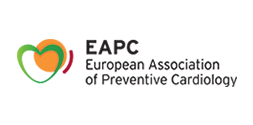Mediterranean diet: a heart-friendly way to eat
The Mediterranean diet is probably the most discussed and promoted way of eating to prevent cardiovascular disease and slow progression in people with cardiovascular disease.

Its cardioprotective properties are widely supported in studies which highlight the importance of a dietary pattern rich in fruits, vegetables, whole grains, olive oil, fish and poultry.
Unhealthy dietary habits are one of the major contributors to illness and death from cardiovascular disease in Europe. The Mediterranean diet is one of the most studied eating styles for its heart healthy effects. It emphasises primarily eating plant-based foods like fruits, vegetables, whole grains, legumes and nuts, using olive oil in place of other fats, and eating fish at least twice a week. Herbs and spices are used instead of salt to flavour meals, while red meat and added sugars are limited. Taken together, this dietary pattern has a high content of mono- and poly- unsaturated fats, dietary fibre from plants, antioxidants, and anti-inflammatory factors. The 2021 ESC CVD prevention guidelines strongly recommend the Mediterranean diet as a key dietary pattern for the prevention of cardiovascular diseases (class I, Level A).
The Mediterranean diet is a sustainable and effective dietary pattern for improving overall health and preventing various chronic diseases. Adopting this diet can lead to significant improvements in cardiovascular health, weight management, glycemic control, cognitive function, cancer prevention, longevity, and inflammation reduction. Effective promotion of the Mediterranean diet requires a multi-faceted approach involving education, media, community engagement, policy changes, collaboration with the food industry, and cultural adaptation.



